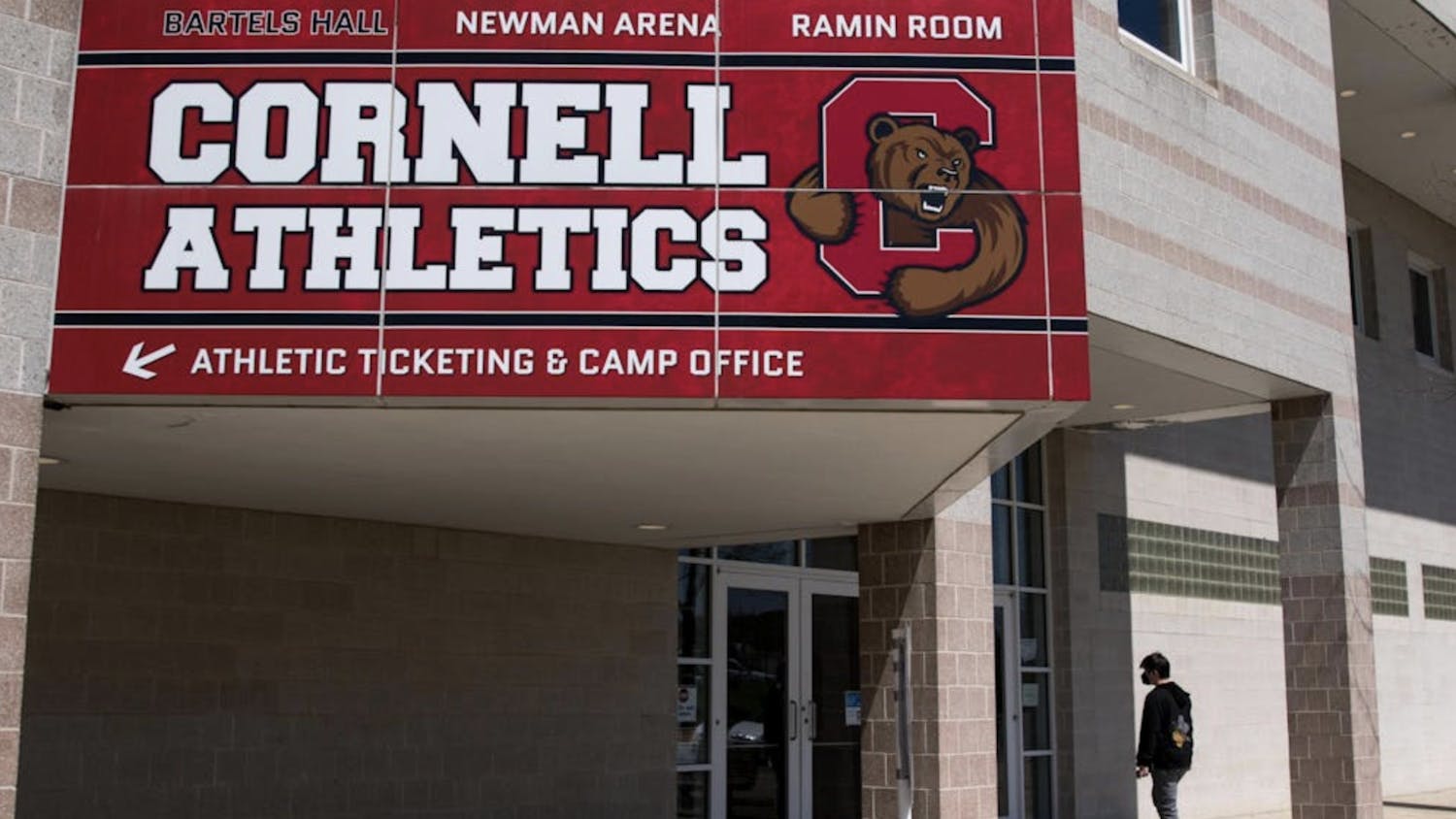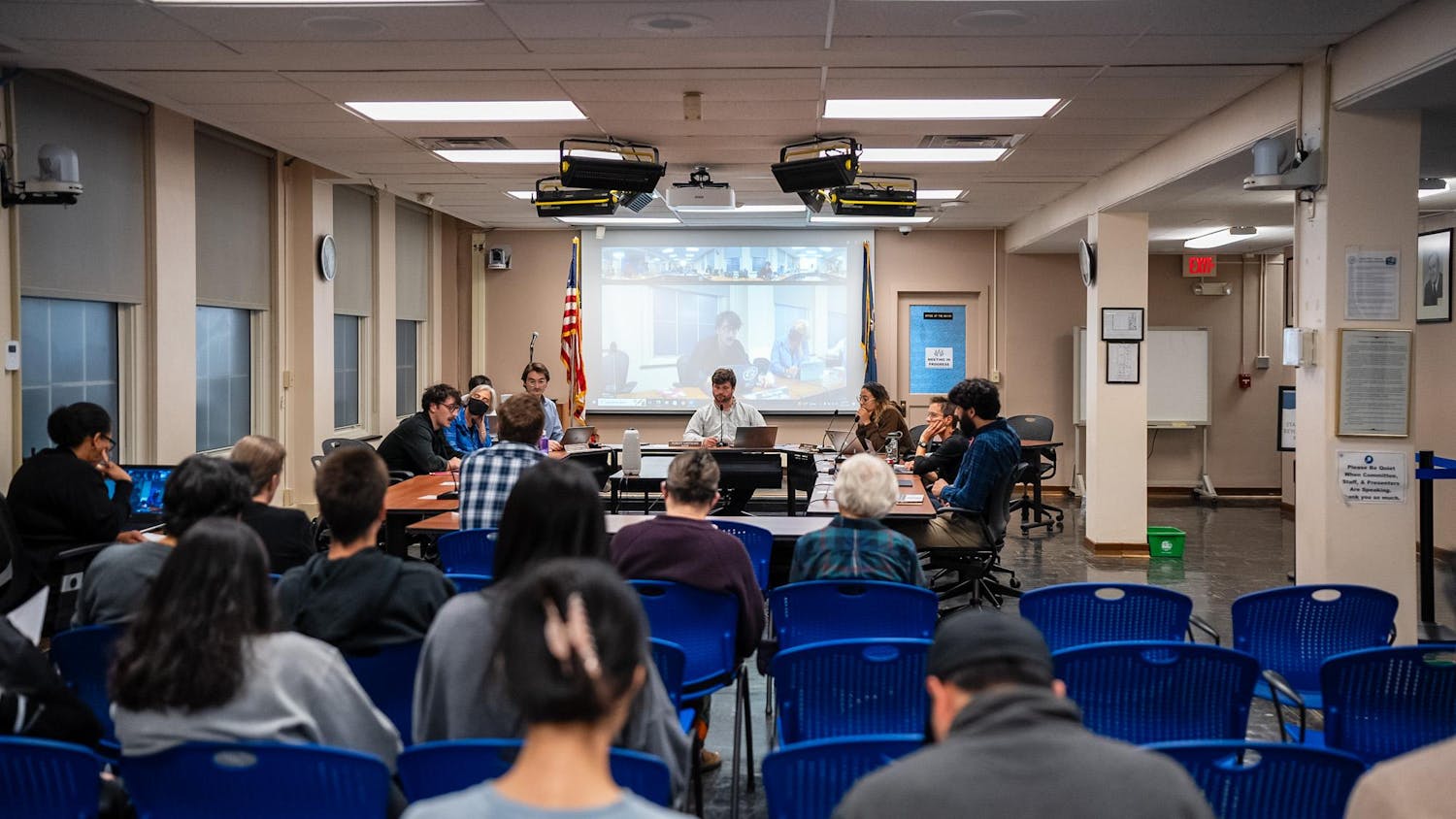In 1943, at only five years of age, Bill Donat was separated from his family in Poland’s Warsaw Ghetto and cast into the arms of strangers to protect him while war ravaged the city around him. Donat spoke to the Cornell community last night about his experiences in the ghetto, as well as finding refuge in a Catholic orphanage. The event was sponsored by Students for Tolerance, Awareness and Remembering Survivors and the Cornell Chapter of the American Jewish Committee. When Donat was two years old, Poland was invaded by Germany, turning daily life into a quest for survival. “How bad could occupation be? Very shortly we found out, especially in the Jewish community,” said Donat. The first people picked up from the ghetto and sent to concentration camps were those who could not provide proper work permits. Fortunately, due to Donat’s father’s role as a newspaper publisher and his mother’s job in a pharmacy, each of his parents were considered to be an integral part of the community for some time. In Poland, Jews were required to wear a white armband emblazoned with a blue Star of David for identification. More and more Jews were shuttled into the ghetto, leading to overcrowding and starvation. Donat recalled an incident from his youth when Wehrmacht soldiers barged into his family’s apartment in order to take linens, silverware and other items. Crying and afraid, the young child watched his favorite toy — a wooden rocking horse — being taken away from him. “The soldier said to my father, ‘Tell him I’ll return it after the war.’ But I still haven’t seen it,” said Donat. In the ghetto, people were told the trains were bringing them to the east to an agricultural training facility where they would learn farming skills. However, one man who escaped and made it back to the Warsaw Ghetto explained Jews were in fact being shipped to the concentration camp of Treblinka. Donat’s father was able to make arrangements with the Catholic wife of a member of the newspaper staff to hide his young son. Known to Donat as ‘Auntie Maria,’ the woman agreed to take him as long as he was able to learn to say Christian prayers. “The desperation of the moment required we make it work,” said Donat. After the local police discovered him living with his so-called aunt, a new hiding place for Donat was necessary. Auntie Maria took Donat to an empty apartment building where, from a window on the top floor, he could see flames coming from beyond the ghetto wall across the city. During this time, his parents were shipped to Majdenek, a labor and extermination camp, where they were separated and sent to various other concentration camps. Not long after, Donat was taken to a Catholic orphanage in a town south of Warsaw where he was taken in and baptized. “I would pray to Jesus for some more food and for the terrible sin of having been born a Jew.” After making a promise to a nun never to leave the orphanage, Donat broke that promise when his mother brought him food and he left with her. His mother had survived several camps, and walked over 500 miles to reclaim her son. “My mother said, ‘If you come with me, you’ll never be hungry again.’ I said, ‘let’s go.’” Donat later came to the U.S. as a result of a business deal orchestrated by his father. He graduated from Colgate University in 1960. Currently, Donat is an active contributor to Thanks to Scandinavia, an organization which commemorates the rescue of Jews in Scandinavia by providing scholarships to young Scandinavian students. “His personal testimonies are important for us to hear, especially since we’ll be the last generation to hear these kinds of stories,” said Ray Bai ‘07, president of STARS. “Since the Holocaust, genocide has manifested in several other ways. It’s important to try to learn from history.” David Greenky ‘07, president of the AJC at Cornell said, “[Donat] has an incredible story; it’s very unique, the fact that his whole family had survived. I hope that people will pay attention to the news and campus events, as well as take advantage of the many avenues to take action.” Donat closed his lecture with a call to action, “The Jewish community thought this would never happen again — but ‘never again’ doesn’t happen. We’ve since had Cambodia; we’ve since had Darfur ... What does it take for humanity to learn? Please remember this story of a little boy who was lost and then found. Get involved.”
Warsaw Ghetto Victim Speaks to C.U. Students
Reading time: about 4 minutes
Read More










